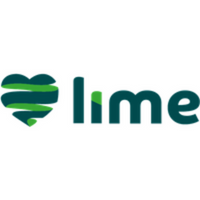3 good reasons to review your workplace cancer readiness
There are some topics, like cancer in the workplace, which shouldn’t be avoided. Thinking about cancer is tough. As a leader, as a colleague, as a human it can make you feel helpless.
While we can’t stop cancer from happening, what we can do is be as prepared as possible for when it does.
1. Mitigate the risk of discrimination
While you might have a myriad of policies in place around sickness absence, cancer is a protected characteristic when it comes to disability discrimination in the workplace.
A study in 2022 revealed that “cancer-based discrimination is common, with an estimated 40% of cancer survivors reporting experiencing some form of discrimination at work. The most common include being denied a job, being passed over for a promotion, and being subjected to harassment or bullying”.
Many employers are falling foul simply by lack of preparedness rather than outright intent to discriminate. But this doesn’t make it right and tribunal awards for disability discrimination are uncapped.
And it’s not just a financial risk. While being unprepared for cancer in the workplace might be costly the adverse publicity presents a significant reputational risk too. In recent years, some large organisations have even seen falls in share price, along with dents in investor and customer sentiment.
Think about cancer like you think about health and safety legislation: take steps to mitigate the workplace risk before an incident happens should be considered a business imperative.
2. Being cancer ready makes a clear statement
Cancer-based discrimination can be incredibly damaging and in a recent study by the American Cancer Society an estimated 60% of consumers would be less likely to do business with a company that discriminates against people with cancer.
Cancer-based discrimination leaves a bitter taste and risks eroding years of work to improve and sustain positive cultural sentiment.
Becoming cancer ready means being proactive. Create specific employee polices that are not only transparent and fair, but policies that engender a zero-tolerance approach to cancer discrimination.
Ensuring line managers are properly trained with the resources to manage tough conversations and being clear what external support is available for employees are all powerful tools to really demonstrate your organisational culture in action.
3. Make provision for the whole workforce
Private medical insurance can cover the costs of private cancer diagnosis and treatment. With the NHS under pressure more than ever, it is a fantastic employee benefit, but one that is often available only to the top 10% or 20 % of the workforce, typically senior leaders.
Inadvertently, this top-down approach to health benefits might be in direct contrast to an organisational culture which champions inclusivity and equality.
Cancer support shouldn’t start and stop with your senior leaders and being cancer-ready means challenging this status quo. It means being more proactive, more demanding and finding more affordable employee health solutions that support the whole workforce.
If you want to know more about being Cancer Ready or want to undertake a no obligation cancer readiness assessment, contact Lime, or register for our upcoming webinar.
Supplied by REBA Associate Member, Lime
Whole of workforce health services that make a real difference. Affordable, accessible, simple.








